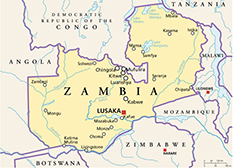ENGAGE Project (Pakistan, Zambia, and Mexico)
Many international development programs rarely make the effort to involve disabled persons organizations as stakeholders, and as a result, fail to address the needs of people with disabilities in a strategic and inclusive manner. The purpose of the USAID-funded ENGAGE Project (2007 – 2010) was to advance inclusive development assistance practices. Working in Pakistan, Zambia, and Mexico, the ENGAGE Project designed and tested strategies to include a viable disability dimension in programs in the HIV/AIDS, education, and governance sectors.
 In Pakistan, ENGAGE worked with the Allama Iqbal Open University Department of Special Education to introduce “inclusive education to the Bagh district of Azam Jammu and Kashmir through teacher training for primary school teachers of multi-grade classrooms. Azam Jammu and Kashmir had no separate “special education” system, and was thus an optimal setting to introduce inclusive education through teacher training.
In Pakistan, ENGAGE worked with the Allama Iqbal Open University Department of Special Education to introduce “inclusive education to the Bagh district of Azam Jammu and Kashmir through teacher training for primary school teachers of multi-grade classrooms. Azam Jammu and Kashmir had no separate “special education” system, and was thus an optimal setting to introduce inclusive education through teacher training.
In Zambia, the program collaborated with the Zambian Federation of Disabled Persons’ Organizations, which trained teachers to ensure that students with disabilities who attend residential schools receive instruction on HIV/AIDS prevention and awareness, a common practice at other public schools in Zambia. The Project also worked with World Vision’s RAPIDS Program to conduct applied research and to train caregivers and staff to understand and address the link between disability and HIV/AIDS vulnerable households. The ENGAGE team also provided training in country to USAID staff and to its implementing partners.

ENGAGE worked to launch Mexico’s first cross-disability advocacy coalition and position that coalition to draft a report that monitored the Mexican government’s compliance with the UN Convention on the Rights of Persons with Disabilities. Furthermore, the program assisted other Mexican disability groups advance advocacy in education and also conducting training programs for USAID staff in Mexico.
AIR’s program strengthened the capacity of disability organizations to become active partners in the design and implementation of development cooperation; developed model inclusive development strategies that benefited individuals with disabilities in the three county settings, and that can be adapted and replicated throughout USAIDs program interventions; and provided training that results in the inclusion of a viable disability dimension in a significant number of USAID requests for proposals, and meaningful partnerships between USAID implementing agencies and organizations of and for people with disabilities.